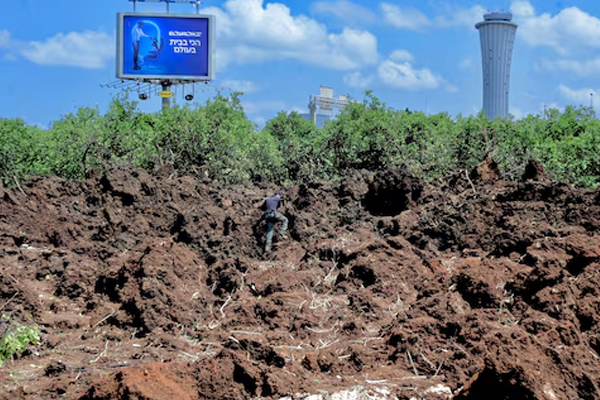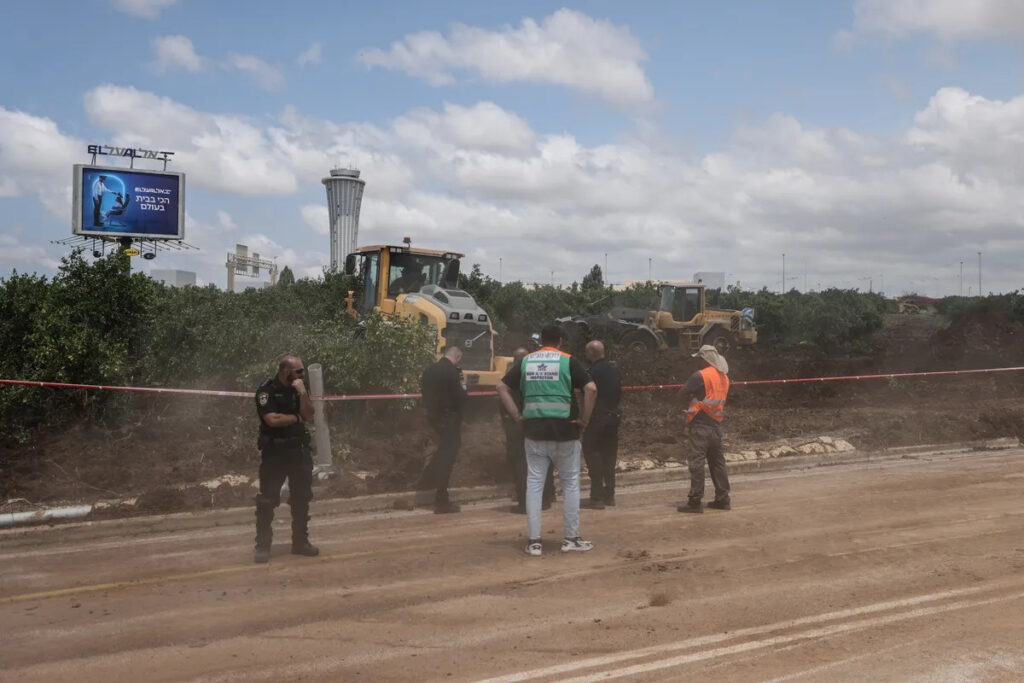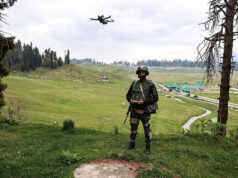
Yemen’s Houthi rebels have declared a new phase in their campaign against Israel, announcing on Sunday that they will impose a “comprehensive aerial blockade” by targeting Israeli airports with missiles and drones. The move, they say, is in retaliation for Israel’s intensified military operations in Gaza and is part of their broader stance of solidarity with the Palestinian people.
In a statement released by the Houthi-run Humanitarian Operations Coordination Center, the Iran-aligned group claimed responsibility for a missile strike on Sunday that reportedly landed near Ben Gurion International Airport — Israel’s main international gateway. The Houthis warned that Ben Gurion would remain their “top target” and urged international airlines to immediately suspend flights to Israeli airports.
“We call upon all international airlines to take this announcement into serious consideration and cancel all flights to the airports of the criminal Israeli enemy, in order to safeguard the safety of their aircraft and passengers,” the statement read.
According to the Houthis, an official email communicating this intent was sent to the International Air Transport Association (IATA) and the United Nations’ International Civil Aviation Organization (ICAO), signaling the group’s desire to publicly warn civil aviation authorities and the international community.
A Growing Threat from Yemen’s Skies
While most previous Houthi missile and drone attacks have been intercepted by Israel’s sophisticated air defense systems, Sunday’s strike near Ben Gurion Airport marks a significant development. It is the first successful impact of a projectile launched from Yemen since the group resumed such attacks in March.

Though no casualties or damages were reported, the incident has raised alarm over the Houthis’ growing missile capabilities and the risks posed to Israeli civilian infrastructure and international air traffic. A drone launched by the group previously struck Tel Aviv in 2023, though it caused only minor damage.
Israel Vows Retaliation
Israeli Prime Minister Benjamin Netanyahu responded swiftly to the latest escalation, vowing to retaliate. “We will not allow threats to our airports or civilians to go unanswered,” Netanyahu said in a brief statement. Israel has yet to formally disclose what military or diplomatic steps it intends to take in response.
Israeli defense officials have previously warned that attacks from Houthi-held areas in Yemen represent a significant strategic challenge, particularly when coordinated with Iran-backed forces in Syria, Lebanon, and Iraq.
Backdrop: Gaza War and Widening Regional Tensions
The Houthi escalation comes at a time when Israel is preparing to expand military operations in the Gaza Strip, following the breakdown of ceasefire talks and mounting international frustration over the humanitarian situation.
Since the end of a temporary truce in March, Israeli forces have been carving out extensive buffer zones in Gaza, compressing the enclave’s 2.3 million residents into increasingly smaller areas. Aid agencies report severe restrictions on humanitarian aid deliveries, raising fears of a full-scale famine.
Israel’s military campaign — launched in response to the October 7, 2023 Hamas attack that left 1,200 Israelis dead and over 250 taken hostage — has devastated much of Gaza. According to health officials in the enclave, over 52,000 people have been killed since the offensive began.
The Houthis, who control much of northern Yemen and are backed by Iran, have positioned themselves as defenders of Palestinian rights. They have carried out repeated drone and missile attacks targeting what they claim are Israeli-linked commercial ships in the Red Sea and Gulf of Aden, further complicating regional maritime security and drawing U.S.-led military responses.
International Concerns
The latest threats against Israeli airports mark a dangerous new dimension in the ongoing regional escalation, as international civil aviation authorities weigh the implications for flight safety. If followed through, such actions could severely disrupt international air travel to and from Israel and place civilian passengers and commercial airlines at risk.
Neither IATA nor ICAO have publicly responded to the Houthi warning as of Monday. Aviation analysts caution that while the Houthis lack the technological capacity for sustained precision strikes, even isolated successful attacks can undermine airline confidence and pose a serious safety threat.
What Happens Next?
The situation remains fluid, with fears of further regional spillover if retaliatory strikes are carried out or if additional Houthi attacks successfully breach Israeli air defenses. Analysts say that continued attacks on airports — typically considered red lines in armed conflicts — could provoke a broader Israeli military response inside Yemen, further destabilizing the region.
With ceasefire negotiations in Gaza stalled and no sign of de-escalation from the Houthis, the risk of regional war broadening through proxy actors like the Houthis, Hezbollah, and Iran-backed militias remains high.



